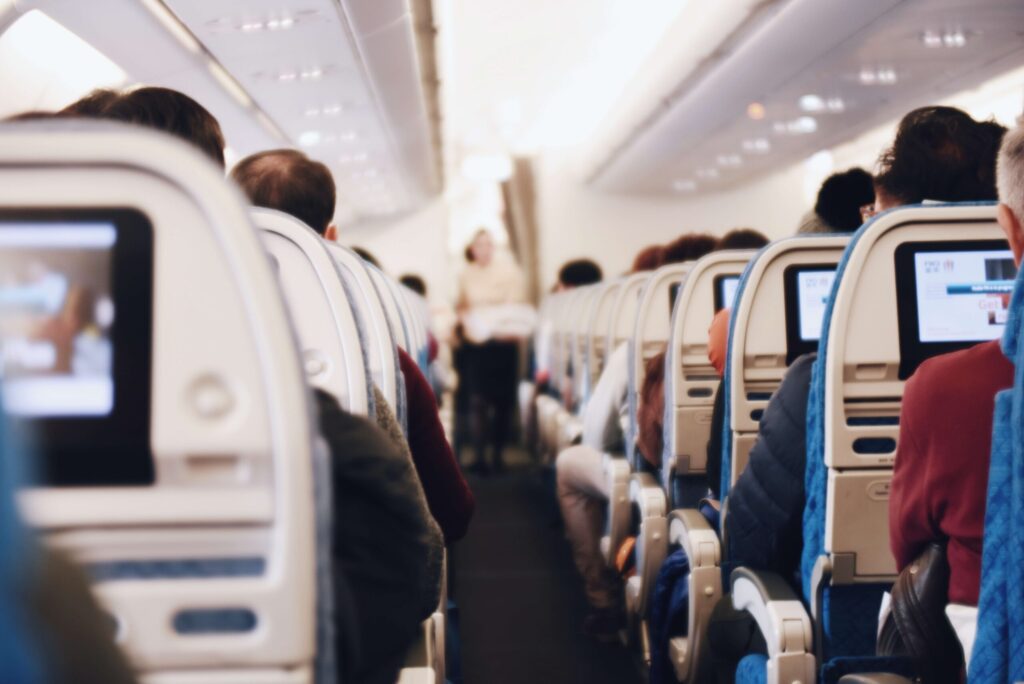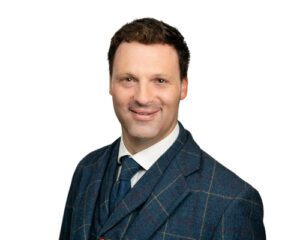Struggling with hearing? Request a hearing test appointment today.

There are lots you can do to protect your ears when flying and make your journey so much better.
From roaring engines to popping ears and the continual din of air rushing past metal as you rocket through the sky, aeroplanes can really take a toll on our ears. There’s even a condition known as airplane ear that can lead to severe pain, bleeding, and hearing loss if it continues and you don’t seek medical attention.
As growing numbers of vaccinated people are taking to the skies after a prolonged absence due to the pandemic, we decided to write this post to offer tips on how to protect ears when flying. Our hearing is often the last thing we think about regarding our health, as all too often we take it for granted — until we run into trouble and then wonder why we didn’t take preventative steps earlier.
So here are some simple steps you can take to protect your ears when flying.
Key Takeaways
- Prevent ear popping: To prevent ear popping on a flight, you can yawn and swallow, chew gum or suck sweets, perform the Valsalva manoeuvre, use nasal sprays or decongestants, and wear special earplugs designed for pressure regulation.
- Choose the right seat for Noise Reduction: Choose seats towards the front and along the aisle, as these areas are quieter compared to the back and window seats due to reduced exposure to engine noise.
- Ear Protection: Use customised earplugs to protect your ears from the high noise levels of aeroplane engines, which can exceed 120 decibels, especially during long flights.
- Noise-Cancelling Headphones: Invest in noise-cancelling headphones to block out aeroplane noise and passenger disturbances, enhancing your comfort and protecting your hearing.
- Pressure Equalisation Techniques: To prevent ear barotrauma caused by pressure changes during flight, engage in yawning, swallowing, chewing gum, and using the Valsalva manoeuvre. Additionally, staying hydrated helps maintain ear pressure balance.
5 Ways to protect your ears when flying
1. Choose the Quietest Part Of the Plane
A study by aeroplane manufacturer Airbus found that it’s noisier at the back of the plane than the front because you’re getting the sound blast from the jet engines or propellers. It’s also the case if you have a window seat, no matter where on the plane you are, the study revealed. This suggests you should book ear-friendlier seats from the middle up to the top of the aircraft and along the aisle.
2. Wear Ear Protection
When you consider that the noise of a plane when it’s taking off is around 120 decibels (dB) or more, and anything over 70 dB can cause damage to your hearing, it’s wise to use some form of protection. Ear protection like customised earplugs will go a long way towards protecting the delicate parts of the ear that allow us to hear, especially if you’re on a long flight and have to endure the noise for many hours, including at night, when you want to sleep. They’ll also help to muffle the screams and cries of any babies on board.
3. Use Noise-Cancelling Headphones
Whether your flight is a few hours to a European sunspot or lasts half a day or more as you jet to the other side of the world, noise-cancelling headphones are a great way to protect your ears when flying. They work by using a microphone that detects noise and electronics that then kick in and create sounds that cancel it out — all while delivering incredible, high-quality sounds from music or video. They will also help cut noise from that other flying irritant — noisy passengers who won’t stop talking, shouting and laughing, an inflight behaviour that ranked in a survey as the most annoying travel habit.
4. Yawn, Swallow and Chew
Those popping ears we mentioned and that are all too familiar to many fliers can lead to what’s known as ear barotrauma, a condition that can damage hearing. It’s caused by differences in pressure in the ear and outside it as the aircraft takes off, changes altitude and descends. You can give your ears a helping hand by chewing foods or gum, swallowing and yawning, as they have the effect of equalising the pressure in the ear with your frequently changing surroundings. You can also do what many people do to try and stop their ears from popping and holding your hose while gently blowing — a method called the Valsalva maneuver can be particularly effective during takeoff and landing.
5. Stay Hydrated
Drinking lots of fluids — not the alcoholic variety — during a flight will make you feel better because the pressurised air in the cabin doesn’t have as much oxygen as you get on the ground, and it can make you feel sluggish and tired. The swallowing action will also help keep the air pressure in your ears equal to that outside them.
So next time you’re due to fly, try some or all of our tips and you might find your journey so much easier and more comfortable.
What do our audiologists say?
Flying can be challenging for those prone to ear discomfort due to rapid pressure changes. To mitigate ear pain, we recommend using pressure-regulating earplugs, staying hydrated, and practising swallowing or yawning frequently. These measures help in equalising ear pressure and can make the flight experience much more comfortable.”
Lee Fletcher, Regain Hearing (RHAD), (BSHAA), Ba(Hons)
Frequently asked questions
How to Stop Ears Popping on a Plane?
There are a number of strategies you can use to try and prevent ear popping on a flight:
- Yawning and Swallowing: These actions help open the Eustachian tubes, allowing air to flow into the middle ear and equalise pressure.
- Chewing Gum or Sucking on Sweets: This stimulates swallowing, which can help open the Eustachian tubes.
- Performing the Valsalva Manoeuvre: Pinch your nose closed, close your mouth, and gently blow as if blowing your nose. This can help equalise ear pressure.
- Using Nasal Sprays or Decongestants: These can help clear nasal passages, allowing better airflow through the Eustachian tubes.
- Special Earplugs: There are earplugs designed specifically to help regulate ear pressure during flights.
Where is the Best Place on a Plane to Sit to Avoid Ear Pain?
There is no specific seat on a plane that significantly reduces ear pain. However, sitting near the wings in the aisle seats can be more stable and might reduce discomfort due to less turbulence. Having easy access to an aisle seat can allow you to move around more easily and perform pressure-equalising techniques.
Do Earplugs Help When Flying?
Yes, earplugs, especially those designed for flying, can help reduce ear pain and popping. These earplugs slowly regulate the pressure changes in the ear, making the transition smoother and more comfortable.
Do Noise-Cancelling Headphones Help with Aeroplane Pressure?
Noise-cancelling headphones do not specifically help with pressure changes or ear popping – they help with noise reduction which can soothe the ears. They are designed to reduce ambient noise, which can make the flight more comfortable in terms of noise level, but they do not affect the pressure in your ears. For pressure regulation, specialised earplugs are more effective.
Are you having problems with your ears after a flight or anything else? Our friendly and highly skilled audiologists in London are here to help — book a hearing loss treatment consultation with us now.

 Flying can be challenging for those prone to ear discomfort due to rapid pressure changes. To mitigate ear pain, we recommend using pressure-regulating earplugs, staying hydrated, and practising swallowing or yawning frequently. These measures help in equalising ear pressure and can make the flight experience much more comfortable.”
Flying can be challenging for those prone to ear discomfort due to rapid pressure changes. To mitigate ear pain, we recommend using pressure-regulating earplugs, staying hydrated, and practising swallowing or yawning frequently. These measures help in equalising ear pressure and can make the flight experience much more comfortable.”